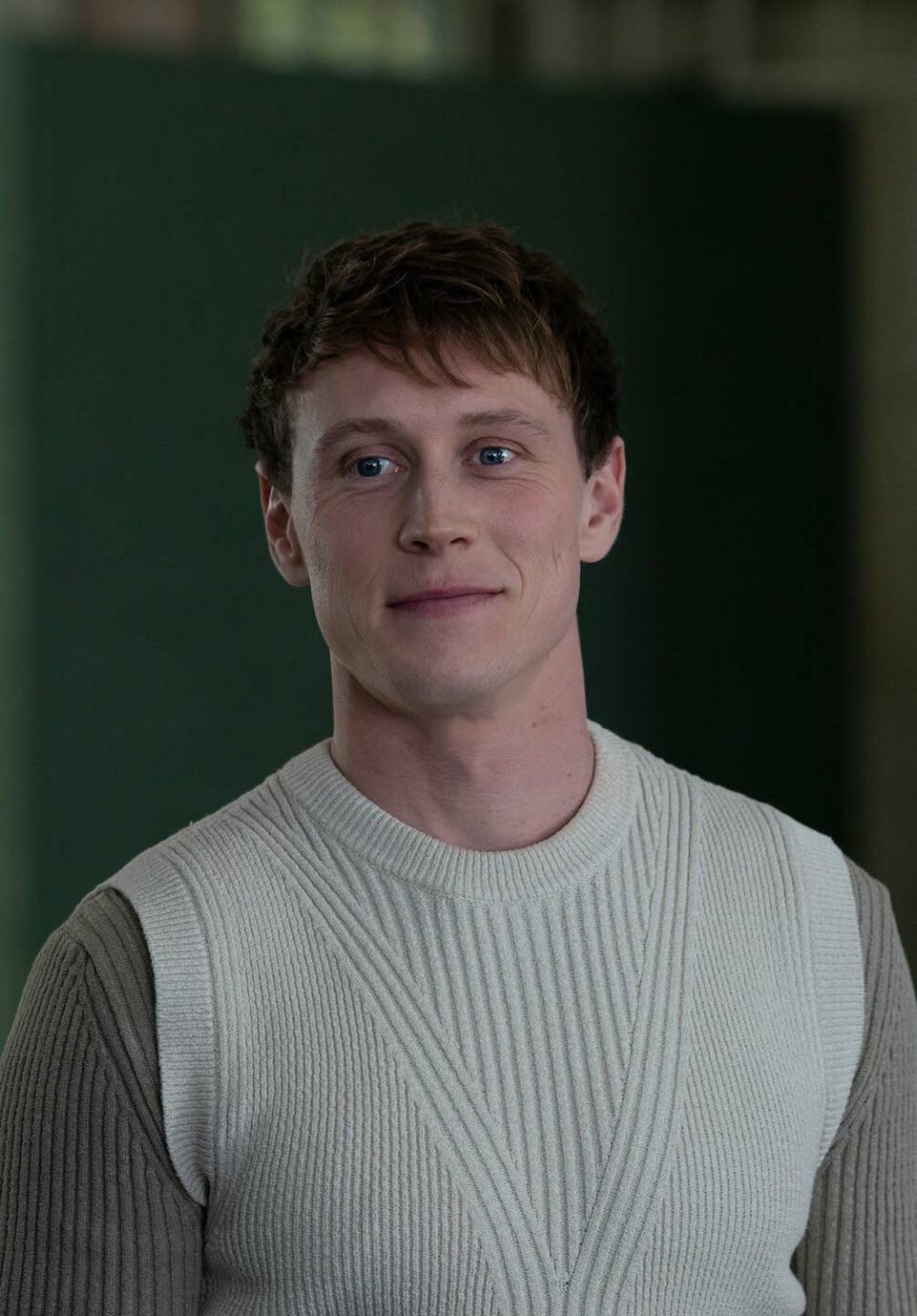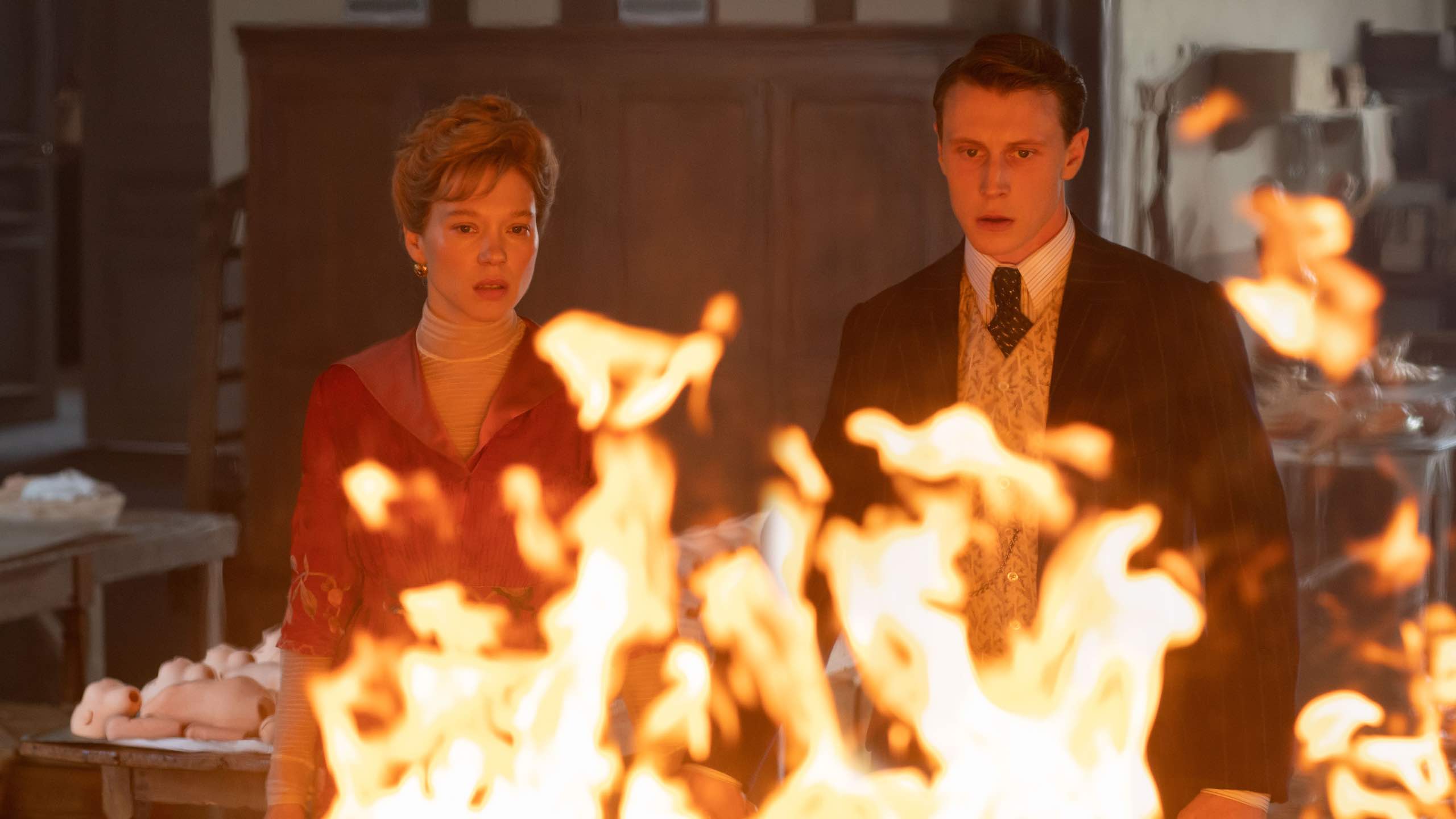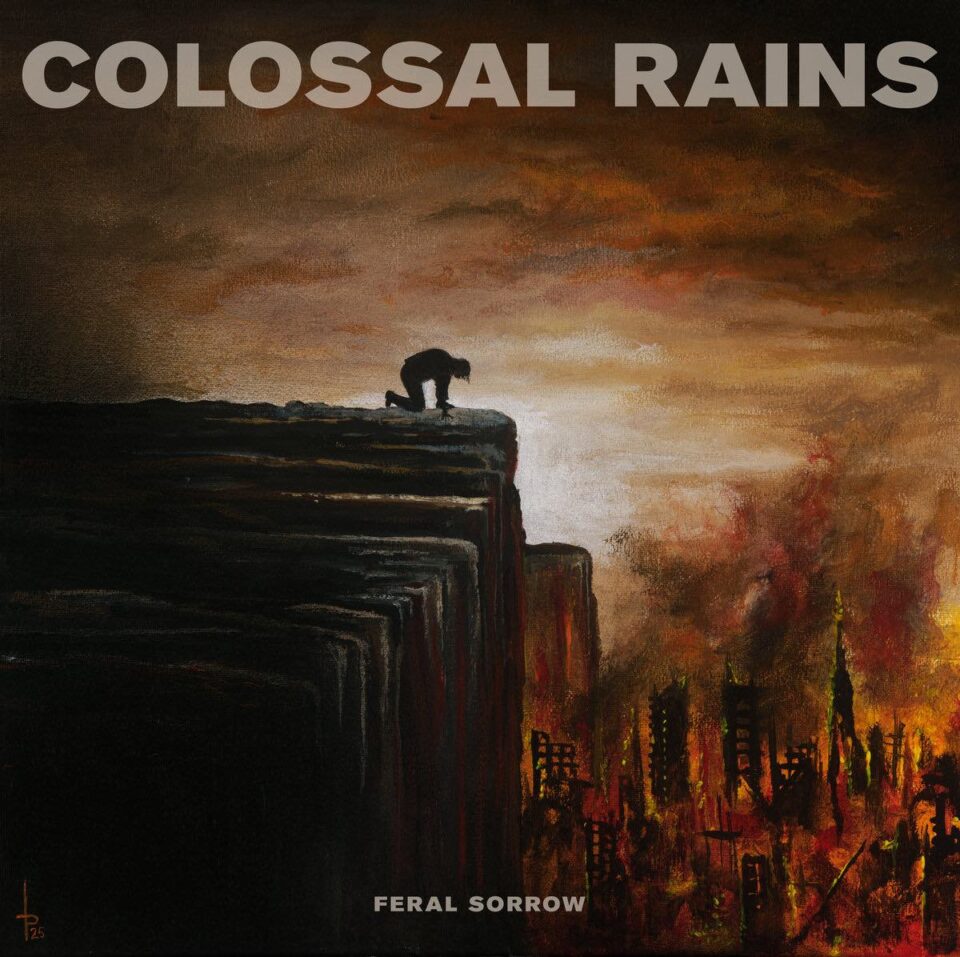A good actor is often described as “chameleonic”—someone who has the ability to seamlessly transform into different characters and inhabit different spaces and worlds. George MacKay is undoubtedly an actor who fits that description. The Brit has become a Shakespearean anti-hero, a WWI soldier, and a notorious gang leader to name but a few of his notable transformations.
His latest movie, The Beast, is another prime example of his chameleonic tendencies as he plays three different versions of the same character throughout three time periods: 1910, 2014, and 2044. Adapted from Henry James’ The Beast in the Jungle, Bertrand Bonello’s film is partly set in a future where artificial intelligence controls all facets of a stoic society as humans routinely “erase” their feelings. Hoping to eliminate pain caused by their past-life romances, Léa Seydoux’s Gabrielle continually falls in love with different incarnations of MacKay’s Louis.
With the film hitting select theaters this month, we caught up with MacKay to discuss the originality of The Beast, its unexpected timeliness, and the excitement that comes with challenging roles.
I haven’t seen anything quite like The Beast—did you feel that way too when reading the script for the first time?
Totally! That was one of the biggest draws. I’ve been lucky enough to read a lot of British, American, and some Australian material, but I’ve never read a script that spoke in these terms. It was so romantic, intellectual, and philosophical. Also, the writing changes with each time [period]. You have the flirtatious back-and-forth, then you’ve got the verbatim monologues in the middle section, and then further existential questioning in the future.
Does it feel like a bit of a throwback to you in some ways? When I think of French movies from the ’60s like Belle de Jour, they can be avant-garde and existential just like The Beast.
In preparation to try and get better with the language, I was watching a few of the old great French films and—without painting too broad of brushstrokes over French culture—I think it feels like more of a French thing cinematically, where people discuss these things in ways that they don’t in British films as much.
“I think of the film like tweed—patterns upon patterns. You watch it and follow one pattern and then the next time you watch it you’ll see another.”
Did reading Henry James’ novel help inform your understanding of your character and this movie?
It gave context to the 1910 setting of the film. Also, [it helped] in trying to map out what was the throughline between these three people [Louis in each era] that were essentially three different people, who were the same person. In the novel, the biggest tragedy is that [Gabrielle and Louis] were scared to get together. Therefore, I started to understand that the “beast” in this film was the fear of love and the fear of commitment.
This is the thing that Louis suffers from, which is what he recognizes in Gabrielle. But, as it’s Gabrielle’s story, that’s what Louis is to her: He’s the thing that destroys her because he’s afraid of committing. That manifests itself sometimes more metaphorically [than at other times], or more extremely, but that’s the core of who he is three times over.
Actors are chameleons, because they transform themselves and inhabit different spaces and times. This movie must have felt like a microcosm of that because you’re almost playing three different roles.
I’m fascinated with this idea of what’s at people’s cores, and how much of that is who they are—how much is where they’re from, or how much is their school or job. There’s a weight we put on those identities. This was great as a challenge to have all three people be so different, but essentially be the same person at the core. I tried to decide the differences of the three characters and I leant very heavily on the context of where they’re from: the etiquette of 1910, the romance of Paris and the flirtatious natures. Then, Elliot Rodger [perpetrator of the Isla Vista killings] for the [2014] monologues—that was based on me stealing a lot of his mannerisms. For 2044 I tried to make it the most natural.

“It’s almost like a sport: you want to play in competitive games and therefore you get better. I think about it in the same way with my characters.”
What have been some of your favorite reactions to the movie so far?
One thing that feels great is that for the people that it really chimes with, it sticks around in their head for a wee while! It grows and unfolds. You can watch it multiple times. I think the more you understand about it coming into it, you’ll track that line of understanding through it and then see it in a different way, which will then give you a different level of understanding. It’s genuinely one of those films that will be satisfying to watch more than once. Some films rip you through them—there’s an energy or a vibe. This movie has that, but I think of it like tweed—patterns upon patterns. You watch it and follow one pattern and then the next time you watch it you’ll see another. Watch it seven times and you’ll see the whole thing!
The Beast also explores fears of AI. A big talking point of the 2023 actors’ strike was protecting workers from AI, so this movie must feel even more poignant and satirical than when you originally shot it in 2022.
The irony was not lost on us! Léa and I didn’t attend its premiere because we were in support of the strikes—which was sad and difficult in not wanting to support the film, but it felt more important to stay home for those labor actions. We were essentially in a literal strike industrial action that was having reverberations and ramifications for something that felt hypothetical. It felt in-the-future. [The movie] was set in 2044, but suddenly we’re in 2024 and it’s really relevant more than ever. It’s kind of bizarre how quickly that future has come to be the present.
“The movie was set in 2044, but suddenly we’re in 2024 and it’s really relevant more than ever. It’s kind of bizarre how quickly that future has come to be the present.”
You recently starred in Femme. Do these challenging roles excite you the most as an actor?
I’m so pleased that those opportunities come about. They’re the roles you dream of as an actor. Preston [MacKay’s character in Femme], despite his difficulties as a man, is an absolute peach of a role given his complexities. But also the ways in which he hides them are so theatrical—you get nuance and theatricality in one go. Also, with The Beast, you get three roles in one! It’s a dream, and I feel privileged more than anything. It’s almost like a sport: you want to play in competitive games and therefore you get better. I think about it in the same way with my characters.
If you get nervous before a role, how do you reduce those anxieties?
I do get anxious, so I think through experience or speaking to home—I’ve got people in my life that calm me down. Then, just thinking about it pragmatically. Anxiety is a very emotional thing, so you have to think, “What is it that I can control?” and “What is it that I can’t control?” Then I’ll just let that stuff go. It’s most useful to everyone else if I just try and do my best, rather than saying, “Fuck it, I’m not going to do it! It’s all ruined!” That’s going to make it a much tougher day for everyone else, so I just have to try my best. If I fuck up then they’re going to help me try to do my best because it’s a mutual thing. FL







